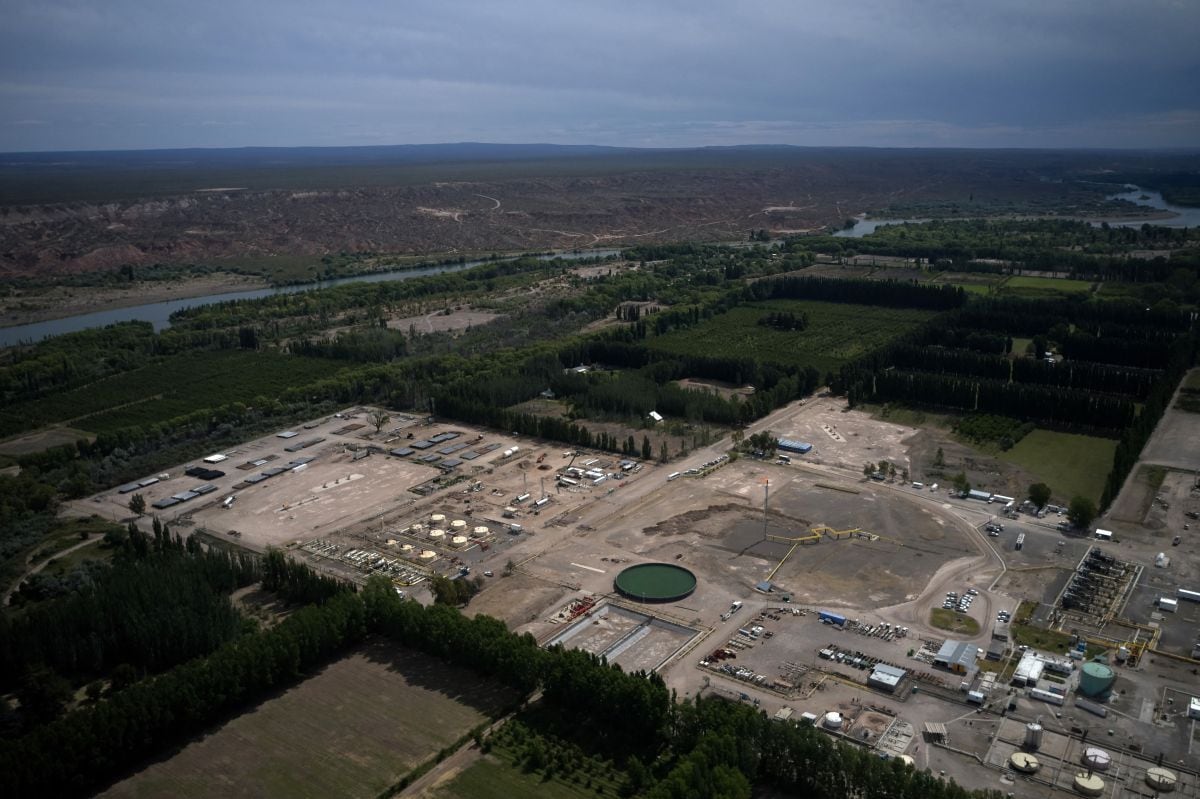
The government of Argentina opens on Sunday the first section of the Nestor Kirchner pipeline (GNK), to transport the fluid from the reservoir of gas and oil unconventional of Dead cow (south) to the province of Buenos Aires (center), through 573 km.
The opening will take place at 3:00 p.m. (6:00 p.m. GMT) in a ceremony at the gas plant “Saturn” in the city of Salliqueló, 520 km southwest of Buenos Aires, in order to bring shale gas from the town of Tratayén, in the heart of Vaca Muerta, in the province of Neuquén (south).
“Its construction cost US$2.5 billion, without external financing. This year we will save imports for US$ 2,000 million, which will reach US$ 4,200 million in 2024″, notes the Secretary of Energy, Flavia Royón, on the government website.
The second section of the GNK, not yet tendered, will measure 467 km, to the town of San Jerónimo in the province of Santa Fe, bordering to the north of the province of Buenos Aires.
“When everything is complete, we will have self-supply of gas and be able to export a considerable volume to Chile, Brazil and Uruguay,” says Royon.
Building the first section of the work took only nine months, less than expected, and more than 47,700 pipes were laid.
“We are working on the financing of the second stage of the GNK based on a pre-agreed credit with the company Power Chinese”, Royón maintains.
Get out of the commercial red
The country’s energy trade balance in 2022 showed a negative balance of US$ 6,633 million for imports of diesel and Liquefied Natural Gas (LNG).
“Our energy balance is going to go from being negative to being in balance and then it will start to be positive”, according to Royón.
One third of the gas goes to residential consumption, another third to industry and the rest to power plants.
Unconventional gas production in May 2023 reached 57.3 billion cubic meters, with a year-on-year increase of 10.7%, according to government figures.
Unconventional oil production registered a year-on-year growth of 26.2%.
Vaca Muerta shale gas represents 42% of the total produced in Argentina. Unconventional oil reaches 46% of the national sum of the activity.
At the time of the nationalization of the YPF oil company in 2012, crude oil and natural gas reserves had fallen by 67% in the last year of concession to the Spanish company Repsol.
The field, whose resources were confirmed in 2011, has the second largest shale gas reserves in the world and the fourth largest unconventional oil reserves, according to the government based on statistics from the United States Energy Information Administration (EIA). English).
Source: AFP
Source: Gestion
Ricardo is a renowned author and journalist, known for his exceptional writing on top-news stories. He currently works as a writer at the 247 News Agency, where he is known for his ability to deliver breaking news and insightful analysis on the most pressing issues of the day.











